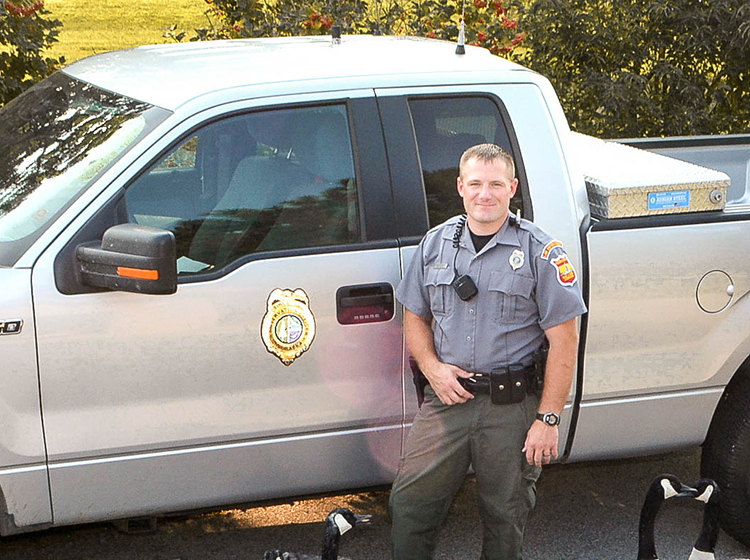
Travis Shepler was one of those students who knew exactly what he wanted to be.
"Ever since I was in elementary school, I had wanted to be a wildlife biologist," said Shepler, a fisheries and wildlife major who graduated in 2005.
But all of that changed after he experienced what life could be like as a conservation officer.
"Although I truly enjoyed my experiences working in the wildlife field, I decided to explore conservation law enforcement," Shepler said. "I set up an internship with the Nebraska Game and Parks Commission's Law Enforcement Division. After my first ride-along, I couldn't get enough of the game warden job."
Fast-forward 10 years, and he's now a Nebraska conservation officer stationed in Lincoln. The job is "just as fulfilling today" as it was a decade ago, Shepler said.
"A career as a conservation officer is very rewarding," he said. "There are many days that I can't believe I get paid to do my job."
Shepler's primary responsibilities are to serve the public and protect the state's natural resources by enforcing fish and wildlife laws and regulations, as well as boating and state park regulations.
In addition to his law enforcement duties, Shepler often assists other NGPC staff with fish sampling, wildlife surveys and public and private land management.
"I also enjoy teaching hunter education, boater education and assisting with the many other outreach programs that NGPC offers," he said. "I enjoy the diversity of job duties that I have the opportunity to perform."
During his undergraduate career, Shepler was involved with several campus organizations. He was a member of Alpha Gamma Sigma fraternity, the Wildlife Club and The Wildlife Society. He also served on the CASNR Advisory Board.
Shepler said SNR gave him the necessary tools and knowledge to be successful in his current career.
"My SNR education prepared me well," he said. "I deal with a variety of fish and wildlife management issues. The many fisheries and wildlife classes that SNR offers allowed me to gain valuable experience and knowledge that helped me become a successful conservation law enforcement officer."
He cites classes with Scott Hygnstrom, Larkin Powell and Mark Vrtiska as particularly memorable and helpful learning experiences.
"Dr. Hygnstrom's Wildlife Damage Management class trip to Rocky Mountain National Park was a great opportunity," Shepler said. "Dr. Powell's Intro to Geographic Information Sciences class and Dr. Mark Vrtiska's Waterfowl Ecology and Management class were two of my favorites, and both provided me with valuable knowledge that prepared me well for my career."
Shepler advises current students to have a plan, stay focused and network as much as possible.
"Get to know professionals in the field you're interested in, and have them help you map out a plan that will make you a qualified job candidate after graduation," he said.
Moreover, be open to opportunities as they come along.
"It is very important to obtain as much relevant work experience as possible during your undergraduate years," Shepler said. "I would also suggest exploring multiple options within the natural resources field. I found my dream job by exploring other career paths late in my undergraduate career."
If a job as a conservation officer sounds appealing, Shepler said it is a great time to join the field.
"Many state agencies, including Nebraska, are beginning to experience large turnover rates in their law enforcement divisions due to retirements," he said. "At the same time, these agencies are also finding it difficult to hire qualified candidates. I would encourage all SNR students to consider a career in conservation law enforcement."
— Mekita Rivas, Natural Resources